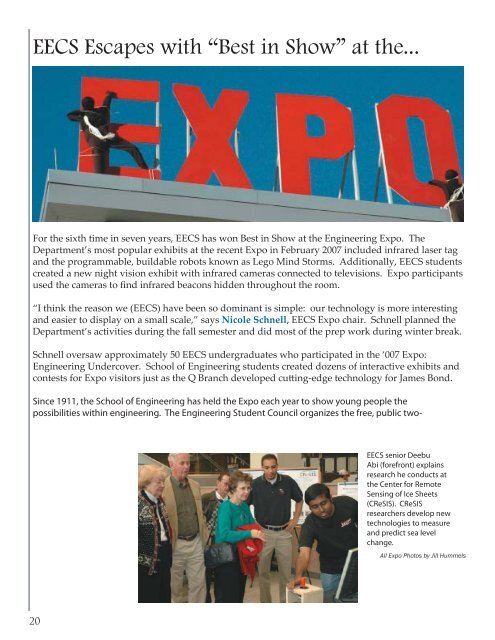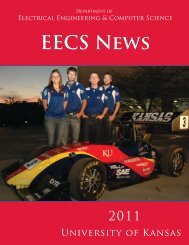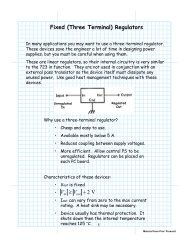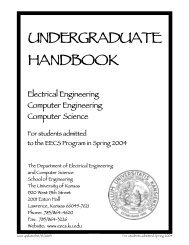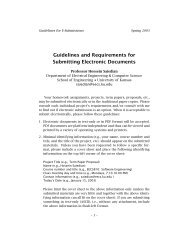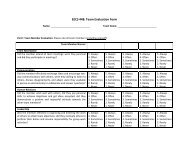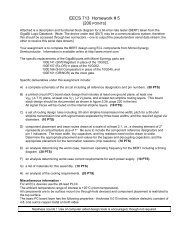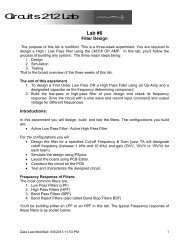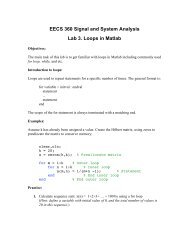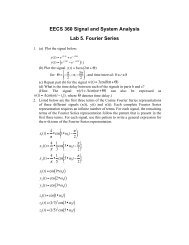EECS News Final 1.30.indd - Electrical Engineering and Computer ...
EECS News Final 1.30.indd - Electrical Engineering and Computer ...
EECS News Final 1.30.indd - Electrical Engineering and Computer ...
Create successful ePaper yourself
Turn your PDF publications into a flip-book with our unique Google optimized e-Paper software.
<strong>EECS</strong> Escapes with “Best in Show” at the...<br />
For the sixth time in seven years, <strong>EECS</strong> has won Best in Show at the <strong>Engineering</strong> Expo. The<br />
Department’s most popular exhibits at the recent Expo in February 2007 included infrared laser tag<br />
<strong>and</strong> the programmable, buildable robots known as Lego Mind Storms. Additionally, <strong>EECS</strong> students<br />
created a new night vision exhibit with infrared cameras connected to televisions. Expo participants<br />
used the cameras to find infrared beacons hidden throughout the room.<br />
“I think the reason we (<strong>EECS</strong>) have been so dominant is simple: our technology is more interesting<br />
<strong>and</strong> easier to display on a small scale,” says Nicole Schnell, <strong>EECS</strong> Expo chair. Schnell planned the<br />
Department’s activities during the fall semester <strong>and</strong> did most of the prep work during winter break.<br />
Schnell oversaw approximately 50 <strong>EECS</strong> undergraduates who participated in the ‘007 Expo:<br />
<strong>Engineering</strong> Undercover. School of <strong>Engineering</strong> students created dozens of interactive exhibits <strong>and</strong><br />
contests for Expo visitors just as the Q Branch developed cutting-edge technology for James Bond.<br />
Since 1911, the School of <strong>Engineering</strong> has held the Expo each year to show young people the<br />
possibilities within engineering. The <strong>Engineering</strong> Student Council organizes the free, public two-<br />
<strong>EECS</strong> senior Deebu<br />
Abi (forefront) explains<br />
research he conducts at<br />
the Center for Remote<br />
Sensing of Ice Sheets<br />
(CReSIS). CReSIS<br />
researchers develop new<br />
technologies to measure<br />
<strong>and</strong> predict sea level<br />
change.<br />
All Expo Photos by Jill Hummels<br />
20


